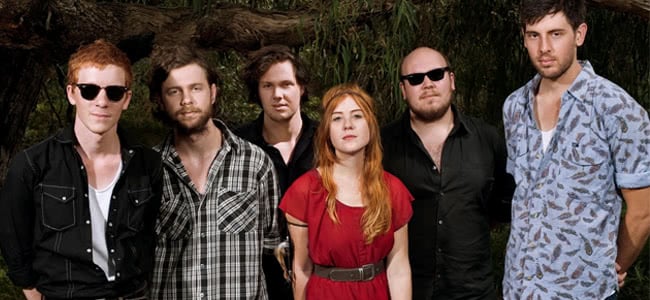In 2011, Townsville outfit The Middle East were one of Australia’s most promising young bands. They’d just released their eagerly anticipated debut album, I Want That You Are Always Happy, to rave acclaim and were hot property on the live circuit.
A few months later, they’d be done, famously announcing their dissolution as they took the stage at that year’s Splendour In The Grass festival. A subsequent statement thanked fans for their support but didn’t offer any further details about what precipitated the breakup.
As triple j reported at the time, rumours began circulating backstage at Splendour early on Sunday evening. When triple j approached the band’s label, they simply stated that the band would be taking an indefinite “break” but were not actually “breaking up”.
But as the band took the stage in the G.W McLennan tent, they announced to the thousands of fans who’d come to see one of Australia’s most swiftly rising bands that the performance that was about to follow would be their last.
“We don’t feel like playing any more for a whole lot of reasons that I won’t list here and I’m afraid if we continue any longer it would just be a money grab,” the J Award-winning six-piece later wrote in an official statement to their fans.
Fans were shocked and critics were confounded, with triple j presenter Dom Alessio expressing his surprise via Twitter, writing, “an amazing band cutting it short before their time”. Speaking recently to FasterLouder, the band have finally illuminated what triggered their break-up.
“We were an extremely confused band,” singer and guitarist Jordan Ireland told FL. “All the hype and excitement surrounding our little knot of young and very naive country kids became really daunting, really quickly and I think you can really hear that in those recordings.”
The band had previously taken a break in late 2008, but Jordan reckons it’s “sort of comical how well we imploded; we were just completely not ready for it. I was pretty ego-crazed and I think by the time we had even started recording the album we were probably already selling ourselves lies.”
“It was a relief to have it released only in the sense that we could move on, but it’s strange hearing it now for the first time in years that I can hear things I never knew were coming out,” he continued.
“All of that confusion and sadness at growing up in dysfunctional religious families and all of that coming into adulthood and realising the world is sadder and messier than anything we had previously conceived.”
“I can hear Townsville in there, a town whose primary existence is based around state-funded violence and digging up coal. Maybe in that sense it’s a good album, as it’s as perfectly confused as the place it came from. My voice still irks me though.”
[include_post id=”398612″]
According to Jordan, the breakup was a longtime coming. As he tells it, fractures began appearing as soon as the band began receiving widespread attention. “Definitely that crack had appeared long before. Probably the moment we started getting played on triple j,” he said.
“We knew about the break up since the start of 2011 or maybe the end of 2010,” multi-instrumentalist Mark Myers told FL. “I don’t think it had anything to do with the album, The Middle East was a fairly unstable band in some respects and I reckon the road to disbanding began around the time the band got together.”

































